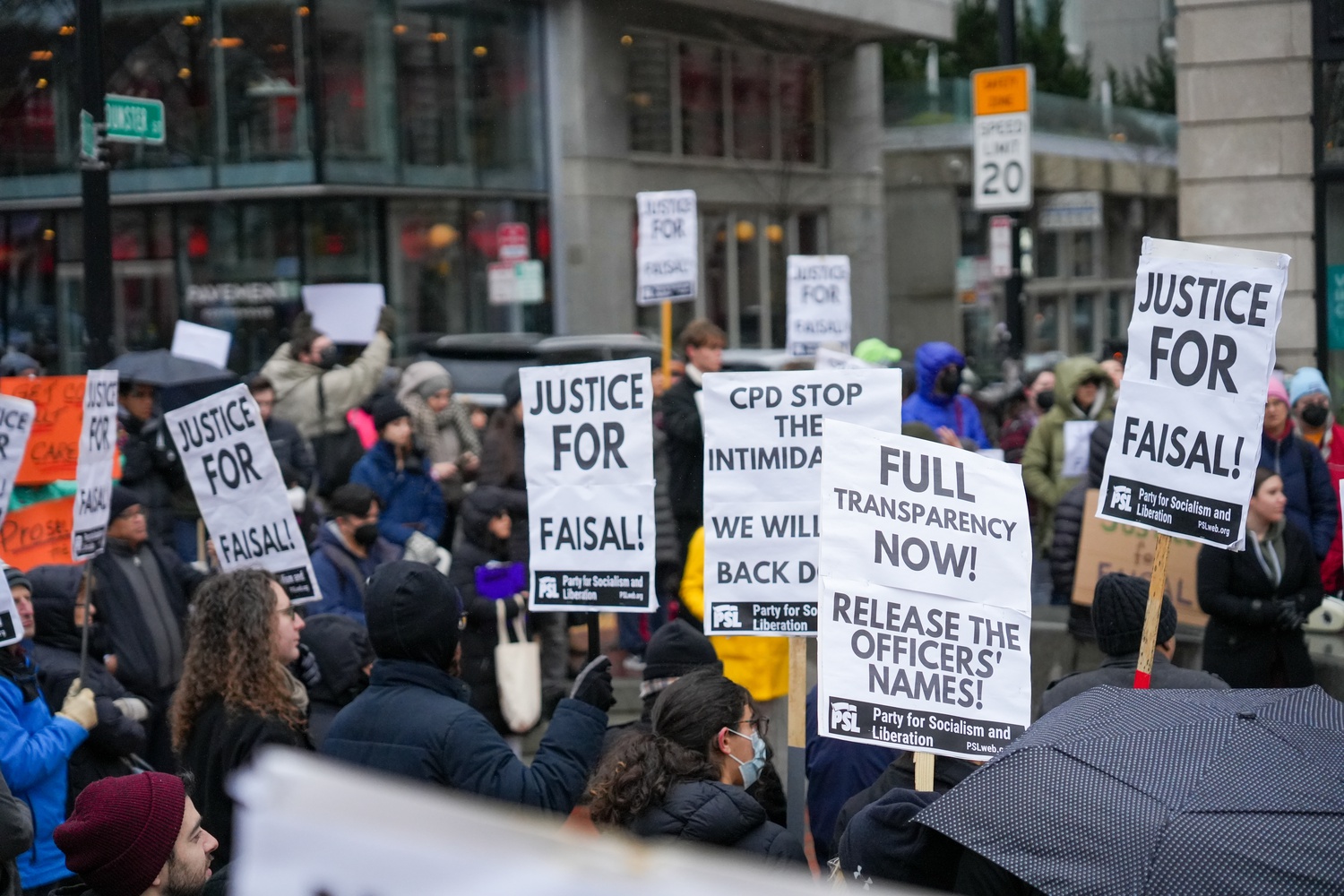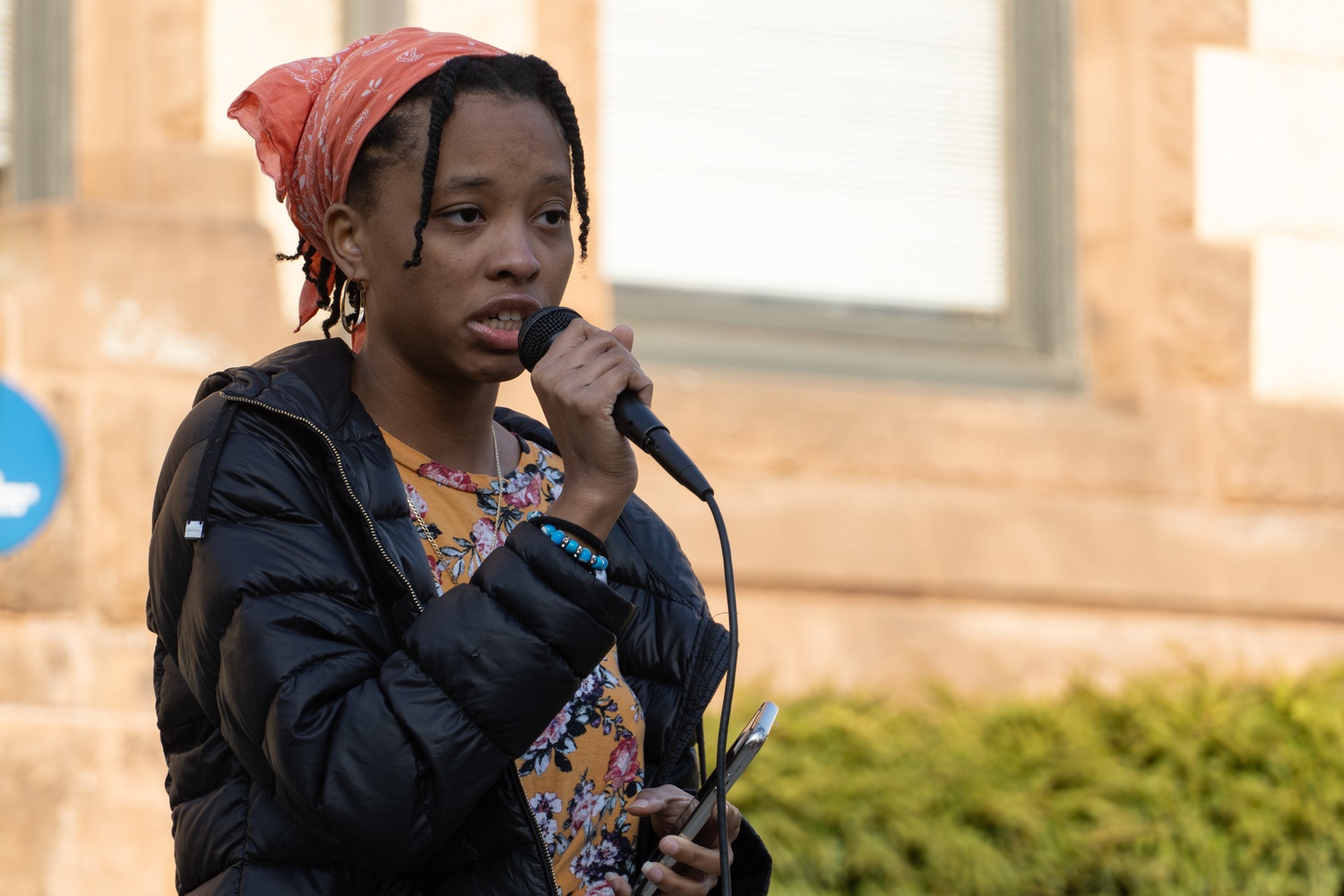
News
When Professors Speak Out, Some Students Stay Quiet. Can Harvard Keep Everyone Talking?

News
Allston Residents, Elected Officials Ask for More Benefits from Harvard’s 10-Year Plan

News
Nobel Laureate Claudia Goldin Warns of Federal Data Misuse at IOP Forum

News
Woman Rescued from Freezing Charles River, Transported to Hospital with Serious Injuries

News
Harvard Researchers Develop New Technology to Map Neural Connections
Harvard Affiliates Criticize Lack of Campus Response to Cambridge Police Killing of Sayed Faisal

Some Harvard affiliates are disappointed by the lack of response from Harvard students to the killing of 20-year-old University of Massachusetts Boston student Sayed Faisal by a Cambridge Police Department officer.
Faisal, a Bangladeshi American resident of Cambridge, was shot and killed by Cambridge Police on Jan. 4 after he allegedly approached officers wielding a knife following a chase through Cambridge, according to a CPD press release.
The killing has sparked months of city-wide protest against alleged brutality and racism in Cambridge’s police and renewed calls for police reform in Cambridge. Though organizing by Boston-area students has been a large part of this push, several Harvard students said they feel their peers are not doing enough.
“From what I’ve seen, there hasn't been a huge response considering how big Harvard is on an international scale and how close Harvard is to the incident that occurred,” said Amari M. Butler ’25, who spoke during a Tuesday rally as city officials met with activists demanding “Justice for Faisal.”

In a statement Wednesday morning, City Manager Yi-An Huang ’05 wrote that he and other city officials are committed to implementing reforms, including “a full review of policies, procedures, and training with independent experts, implementing body cameras, using alternative responses, assessing less-than-lethal options, developing a procedural justice dashboard, and strengthening the City’s mental health resources.”
Some Harvard students have urged their peers to turn out in numbers to show opposition to Cambridge Police.
“It is an act of police brutality — police violence — that happened in our community, that happened to a student that was of a racial minority. It checks all the boxes,” Shruti Gautam ’25 said. “I feel like that would cause an uproar on campus, and I have not seen anything like that at all.”
In a January statement, CPD spokesperson Jeremy C. Warnick wrote that the officer who shot Faisal was a seven-year veteran with CPD and had never before received a complaint. The last fatal shooting by a Cambridge Police officer occurred in 2002, according to Warnick.
Faisal’s killing is currently under investigation by the Middlesex County District Attorney’s Office.
Harvard Yiddish preceptor Sara M. Feldman, who attended a January Harvard Square protest condemning the police shooting of Faisal, said Harvard affiliates “should be very, very concerned about this incident of murder,” and it is “in their own self-interest to be involved in this and to try to prevent the police from harming and killing more people in Cambridge.”
“I wish more people were turning out,” Feldman said, though she added that she was glad to see “solidarity” among the Cambridge residents who demonstrated.

Afiya Rahman ’24, who spoke at a Monday protest outside City Hall and wrote an op-ed in The Crimson calling upon South Asian students to support police abolition in Faisal’s wake, said in an interview that she was disappointed in the lack of organizing among Harvard students.
“I think a lot of times, the spaces at Harvard are very different and very disconnected from working class communities,” Rahman said. “This has been something that’s been overlooked.”
While speaking to protesters outside City Hall, Rahman directly addressed the lack of Harvard students present at the protest.
“It’s embarrassing that as Harvard students, a 10-minute walk away to City Hall is too much of a barrier for you all to be here,” she said Tuesday.
Gautam said she was motivated to join the protests over Faisal’s killing because of her shared identity with Faisal.
“This one specifically, I think just struck a chord not only because it was in the Massachusetts area, but also just because he was South Asian,” she said.
Rahman, a Crimson Editorial editor, said Faisal’s death “really affected me personally.”
“It happened in Cambridge and not far from MIT. He was 20-years-old, Bangladeshi college student, working class. I’m 20, an only child, working class, Bangladeshi,” Rahman said. “A lot of these things speak to my positionality.”
Gautam said she was frustrated with the lack of South Asian participation in recent organizing efforts. This lack of representation drove her interest in becoming involved in the protests.
“There was a disheartening amount of South Asians at the student organizing meeting,” she said. “There is definitely this mentality that these types of issues with the police do not affect Asian groups and South Asians.”

Rahman also said she was “disappointed in the reaction from South Asians on this campus because this is something that should personally speak to us,” adding that she has urged other South Asian students to attend demonstrations and sign petitions related to the protests against CPD.
Butler said students should embrace their role as part of Cambridge by participating in the protests.
“As Harvard students, we are Cambridge community members,” Butler said. “It’s important that we show up for issues that are beyond Harvard's campus borders.”
—Staff writer Ryan H. Doan-Nguyen can be reached at ryan.doannguyen@thecrimson.com. Follow him on Twitter @ryandoannguyen.
—Staff writer Yusuf S. Mian can be reached at yusuf.mian@thecrimson.com. Follow him on Twitter @yusuf_mian2.
Want to keep up with breaking news? Subscribe to our email newsletter.
